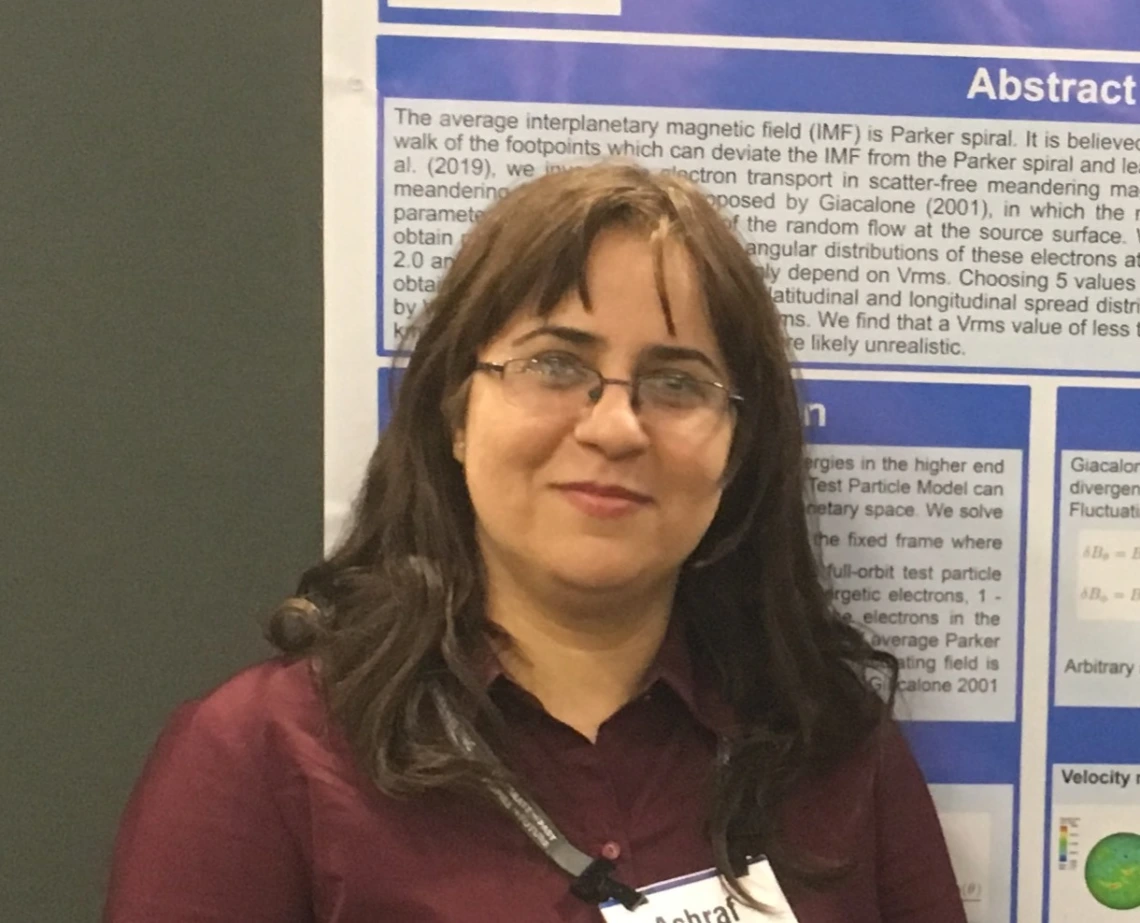Meet Dr. Moradi!

In U of A’s Lunar & Planetary Laboratory, Dr. Ashraf Moradi is a solar and heliophysicist -- a scientist who studies the Sun, Solar storms and the effects on our solar system. Her research focuses on understanding how charged particles from the Sun travel through the interplanetary space and impact Earth.
During solar events such as solar flares and coronal mass ejections (CMEs) — the Sun releases charged particles. Some of these charged particles are rapidly energized in the solar atmosphere. These high-energy particles are called solar energetic particles (SEPs), which travel through interplanetary space, impacting Earth in tens of minutes. While lower-energy SEPs can impact the upper atmosphere infrastructure such as satellite communication and navigation, they are stopped by the Earth’s atmosphere from reaching the ground. However, very high energetic SEPs can penetrate the atmosphere and reach the Earth’s surface resulting in so-called ground-level enhancements (GLEs) which are disruptive to infrastructure and technology such as fiber optics network and power grids. Scientists monitor these highly energetic particles using the worldwide Simpson Neutron Monitor Network.
Dr Moradi’s work involves calculating the trajectory of these highly energetic particles toward Earth, measuring their flux properties and considering factors that might influence particle behavior. Once the particles enter Earth's magnetosphere, the geomagnetic field deflects them toward the geomagnetic poles. Dr. Moradi’s goal is to formulate full sky maps that show the intensity of the particle flux in each direction before the geomagnetic field deflects them. In turn, her collaborators at the University of Hawaii calculate the reverse trajectory of the particles from the Alpha Magnetic Spectrometer aboard the International Space Station to the edge of the magnetosphere to further validate and improve our understanding of the events.
In studying solar energetic particles events and GLEs, Dr. Moradi aims to improve our ability to predict how solar storms might affect Earth. Her research plays a critical role in understanding and ultimately protecting ground-based technology from the harmful effects of solar cosmic rays. She is quick to acknowledge the opportunity she has to contribute to this global research effort focused on understanding and predicting GLE-induced space weather events.
